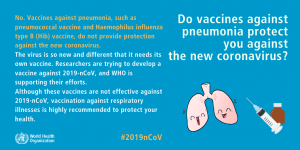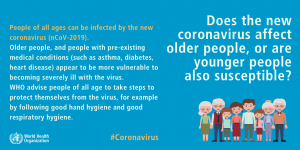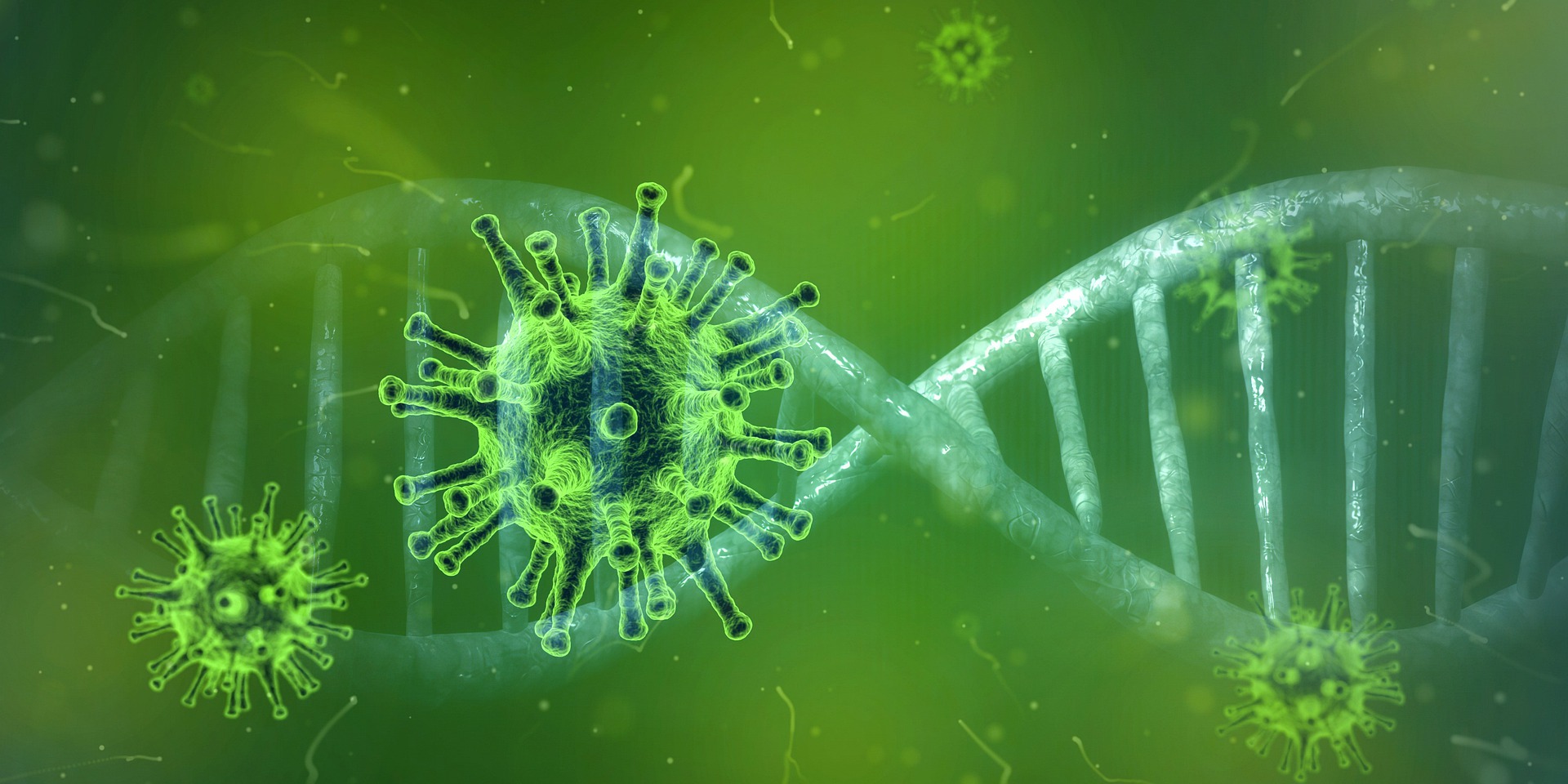Image by Pete Linforth from Pixabay.
Answers to Commonly Asked Questions
By Allison Kozicharow; Edited by Jessie Crowdy
Fact or fiction: Do pneumonia vaccines protect against the new coronavirus? Can garlic help prevent it? Can pets at home spread it?
As the novel coronavirus (2019-nCoV) continues to expand throughout China and the globe, the World Health Organization (WHO) has created the following Q&A list of mythbusters to clarify what is true and what is false about the disease (check here for weekly updates to the list).
Q: Is it safe to receive a letter or a package from China?
A: Yes, it is safe. People receiving packages from China are not at risk of contracting the new coronavirus. Coronaviruses do not survive long on objects, such as letters or packages.
Q: Can pets at home spread the new coronavirus (2019-nCoV)?
A: At present, there is no evidence that companion animals/pets such as dogs or cats can be infected with the new coronavirus. However, it is always advisable to wash your hands with soap and water after contact with pets. This protects you against various common bacteria such as E. coli and Salmonella that can pass between pets and humans.
Q: Do vaccines against pneumonia protect you against the new coronavirus?
 A: No. Vaccines against pneumonia, such as pneumococcal vaccine and Haemophilus influenza type B (Hib) vaccine, do not provide protection against the new coronavirus. The virus is so new and different that it needs its own vaccine. Although these vaccines are not effective against 2019-nCoV, vaccination against respiratory illnesses is highly recommended to protect your health.
A: No. Vaccines against pneumonia, such as pneumococcal vaccine and Haemophilus influenza type B (Hib) vaccine, do not provide protection against the new coronavirus. The virus is so new and different that it needs its own vaccine. Although these vaccines are not effective against 2019-nCoV, vaccination against respiratory illnesses is highly recommended to protect your health.
Q: Can regularly rinsing your nose with saline help prevent infection with the new coronavirus?
A: No. There is no evidence that regularly rinsing the nose with saline has protected people from infection with the new coronavirus.
Q: Can gargling mouthwash protect you from infection with the new coronavirus?
A: No. There is no evidence that using mouthwash will protect you from infection with the new coronavirus.
Q: Can eating garlic help prevent infection with the new coronavirus?
A: Garlic is a healthy food that may have some antimicrobial properties. However, there is no evidence from the current outbreak that eating garlic has protected people from the new coronavirus.
Q: Does putting on sesame oil block the new coronavirus from entering the body?
A: No. Sesame oil does not kill the new coronavirus. There are some chemical disinfectants that can kill the 2019-nCoV on surfaces. However, they have little or no impact on the virus if you put them on the skin or under your nose. It can even be dangerous to put these chemicals on your skin.
Q: Does the new coronavirus affect older people, or are younger people also susceptible?
 A: People of all ages can be infected by the new coronavirus (2019-nCoV). Older people, and people with pre-existing medical conditions (such as asthma, diabetes, heart disease) appear to be more vulnerable to becoming severely ill with the virus. WHO advises people of all ages to take steps to protect themselves from the virus, for example by following good hand hygiene and good respiratory hygiene.
A: People of all ages can be infected by the new coronavirus (2019-nCoV). Older people, and people with pre-existing medical conditions (such as asthma, diabetes, heart disease) appear to be more vulnerable to becoming severely ill with the virus. WHO advises people of all ages to take steps to protect themselves from the virus, for example by following good hand hygiene and good respiratory hygiene.
Q: Are antibiotics effective in preventing and treating the new coronavirus?
A: No, antibiotics do not work against viruses, only bacteria. The new coronavirus (2019-nCoV) is a virus and, therefore, antibiotics should not be used as a means of prevention or treatment.
However, if you are hospitalized for the 2019-nCoV, you may receive antibiotics because bacterial co-infection is possible.
Q: Are there any specific medicines to prevent or treat the new coronavirus?
A: To date, there is no specific medicine recommended to prevent or treat the new coronavirus (2019-nCoV). However, those infected with the virus should receive appropriate care to relieve and treat symptoms, and those with severe illness should receive optimized supportive care. Some specific treatments are under investigation and will be tested through clinical trials.
Source: Adapted from WHO


